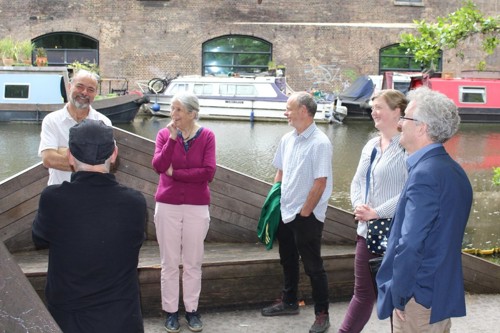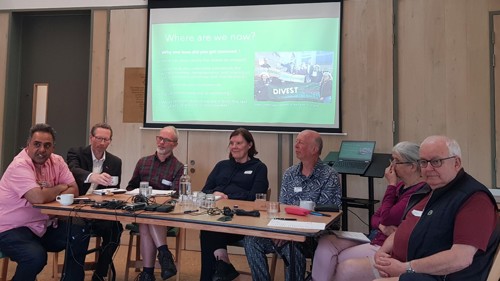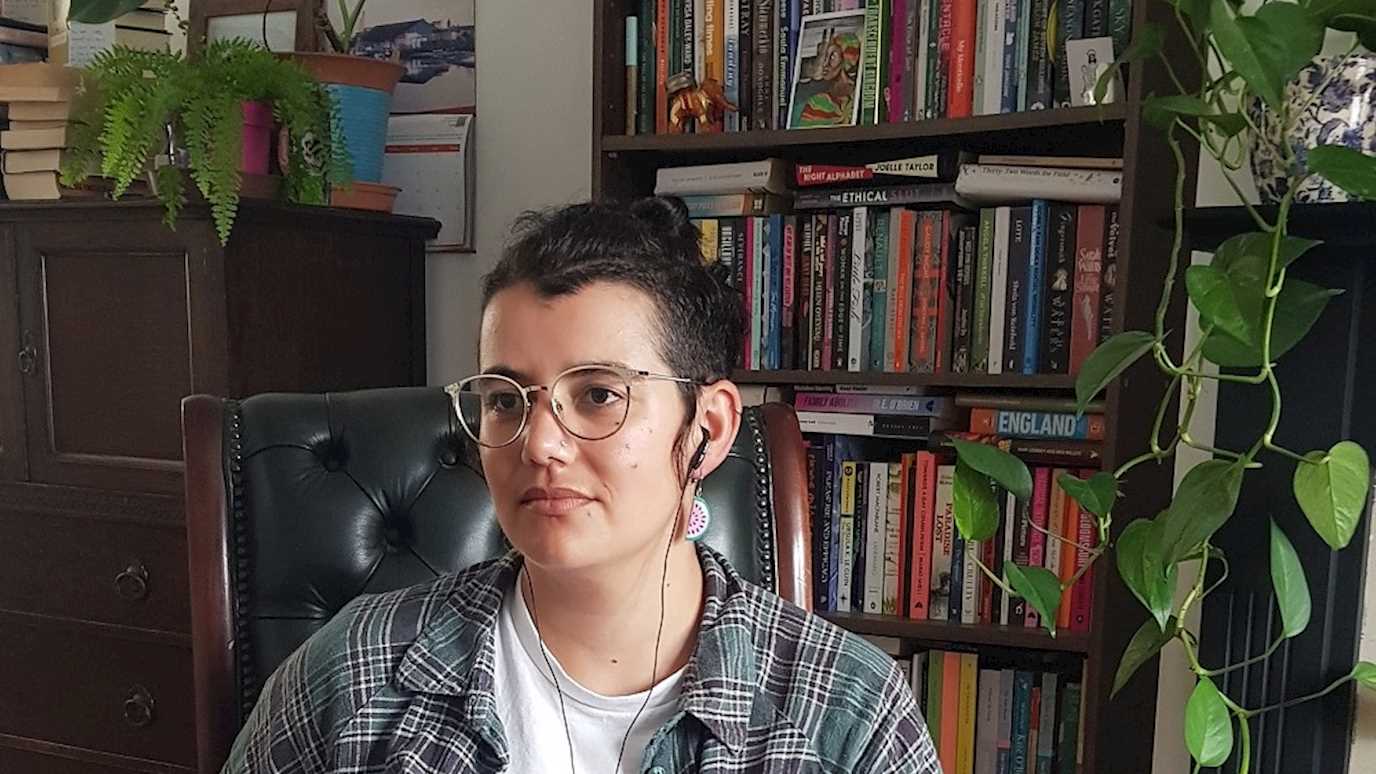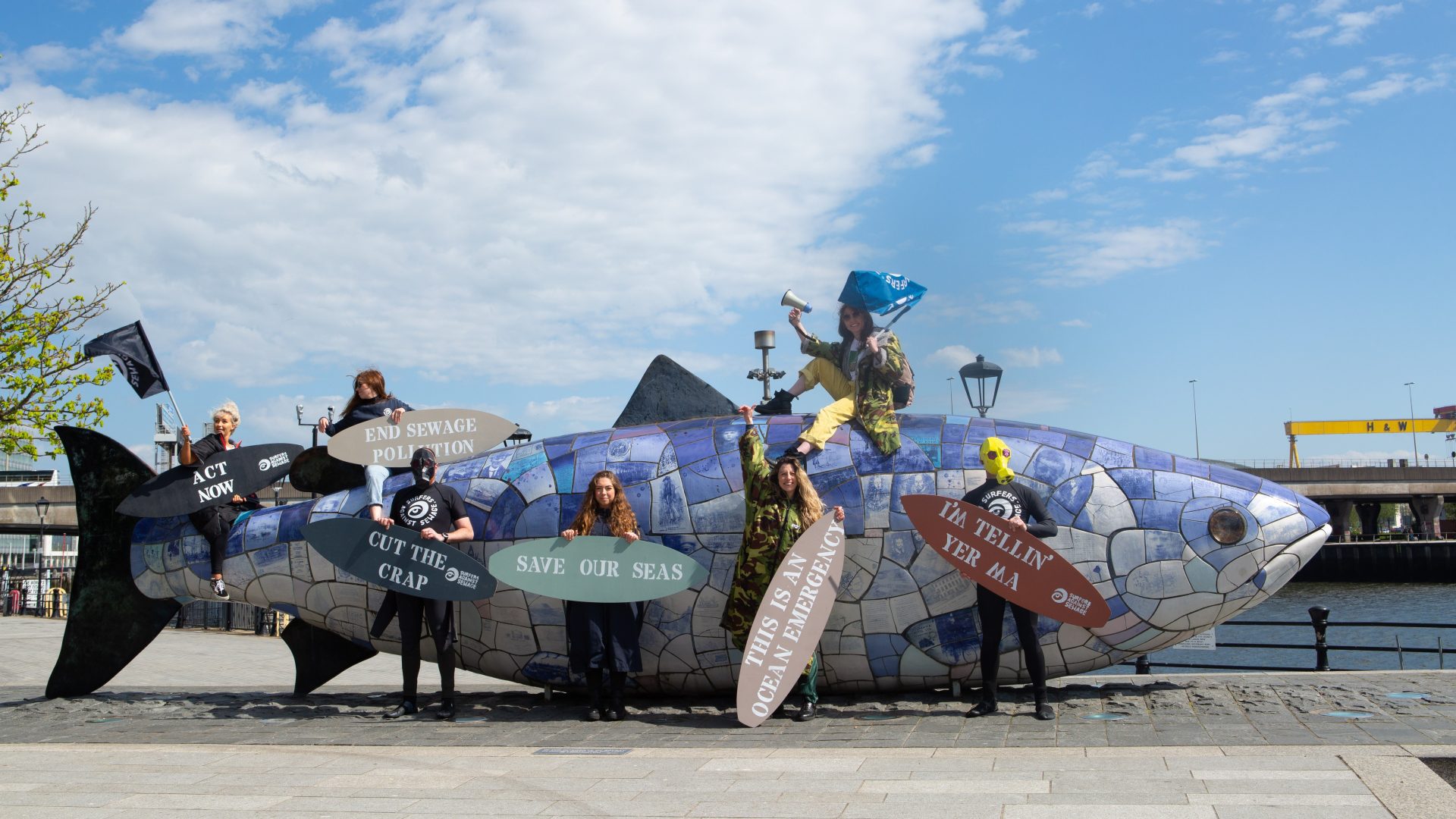Project Officer Chris Church reports on OHEM’s witness seminar on building green infrastructure

Right from the start of the OHEM project we recognised that work done by people in the environmental movement covered three broad issues: protest and pushing for change; policy work and lobbying for change; and project work and creating the change. Much of our work is devoted to recording interviews with 100 individuals, some whom have worked in just one of these areas, although many have had careers and experience that have cut across all three.
We also recognised that while recording one-to-one interviews with our researchers would be central to the oral history archive, it would also be important to hear the change-makers discuss the history of the movement with each other. ‘Witness seminars’ bring together people across the movement to discuss what they achieved, the problems they have faced at different times, and how the movement has developed and evolved. They also give us a further opportunity to record and share collective, rather than individual discussion and debate.
The first of these was held on 13th May 2024 and focused on project work. We brought together people who worked and are working on community energy, green spaces and wildlife, sustainable transport, and waste and recycling. Some worked for voluntary organisations and others for social enterprises.
Our chosen venue was the Camley Street Natural Park, beside the canal just north of Kings Cross, developed in the 1980s as a first ‘flagship’ project of the emerging London Wildlife Trust (LWT). Jeremy Iles, one of our team, was Director of LWT at that time, and thanks to him and the generosity of the Trust, they agreed to host the event.
Planning the event was perhaps the easy part: deciding who to invite was a complex process involving the OHEM team and a degree of subjectivity was involved: personal contacts and recommendations were followed up, and a series of pre-meeting calls were made to renew old acquaintances, or to make introductions and explain the project to others.
The resulting witness seminar was a fascinating mix of recollection and visioning – placing the past 50 years of environmental work in the context of emerging trends and global threats such as climate warming. We chaired discussions on how the sector has made an impact on development of green infrastructure and how things have changed down the years; on the barriers that were faced and how these have been tackled; and asked how the practical project-based approach linked to the policy and protest work. Several of those taking part had been involved in protests, as well as projects – against roads, nuclear power and loss of key nature sites.

We also looked at how the sector has added value to society. Community recycling teams helped engage people with the ideas of waste minimisation and did a lot more than simply empty green bins. Nature projects have helped with wellbeing and championed social prescribing for health. Our participants were pioneers – people turning green ideas into working reality. One of the problems discussed was the way that commercial organisations have come in later, and profited from the innovation and hard work done by community projects; but without this work the sector would be a lot weaker. There was also discussion about the role of government in the past; something that maybe very relevant given that we have a newly elected government committed to delivering nature recovery and net zero.
We hope you’ll enjoy the transcript of the discussion, and that learning from the past can help shape a better future.
























